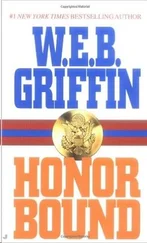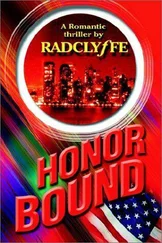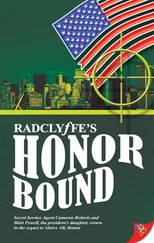George Browne - Where Duty Called - or, In Honor Bound
Здесь есть возможность читать онлайн «George Browne - Where Duty Called - or, In Honor Bound» — ознакомительный отрывок электронной книги совершенно бесплатно, а после прочтения отрывка купить полную версию. В некоторых случаях можно слушать аудио, скачать через торрент в формате fb2 и присутствует краткое содержание. Жанр: Прочие приключения, foreign_prose, на английском языке. Описание произведения, (предисловие) а так же отзывы посетителей доступны на портале библиотеки ЛибКат.
- Название:Where Duty Called: or, In Honor Bound
- Автор:
- Жанр:
- Год:неизвестен
- ISBN:нет данных
- Рейтинг книги:5 / 5. Голосов: 1
-
Избранное:Добавить в избранное
- Отзывы:
-
Ваша оценка:
- 100
- 1
- 2
- 3
- 4
- 5
Where Duty Called: or, In Honor Bound: краткое содержание, описание и аннотация
Предлагаем к чтению аннотацию, описание, краткое содержание или предисловие (зависит от того, что написал сам автор книги «Where Duty Called: or, In Honor Bound»). Если вы не нашли необходимую информацию о книге — напишите в комментариях, мы постараемся отыскать её.
Where Duty Called: or, In Honor Bound — читать онлайн ознакомительный отрывок
Ниже представлен текст книги, разбитый по страницам. Система сохранения места последней прочитанной страницы, позволяет с удобством читать онлайн бесплатно книгу «Where Duty Called: or, In Honor Bound», без необходимости каждый раз заново искать на чём Вы остановились. Поставьте закладку, и сможете в любой момент перейти на страницу, на которой закончили чтение.
Интервал:
Закладка:
"Then steam mills must have rubber belts, cars rubber bearings, and gas works call for miles of rubber hose, to say nothing of that used in gardens and on lawns. Billiard tables alone call for nearly a third of a million dollars' worth of rubber every year, while over a million dollars are spent for the rubber used in baseball and football! Typewriters call for a vast amount; so do the makers of rubber stamps, water bottles, trimmings for harness, and fittings for pipes of one kind and another. Altogether, the rubber factories of the United States alone utilize sixty million pounds of rubber annually. You will not wonder now if I say that rubber ranks as third among the imports of the country, and that its handling is one of the most profitable callings of the day. If this is the electrical age, as it has been called, it is rubber that makes possible the many applications of electricity."
"I had not thought it of such importance," remarked Harrie, frankly. "Where does it all come from?"
"A very pertinent question," replied Jack. "Originally it came from India, hence the name of India rubber, which still clings to it, though the great bulk now, and that which is of the better quality, comes from other countries. Foremost among these is South America. It is true a large amount comes from Central America, the west part of Africa, and the islands of the Indian Archipelago, but the best rubber comes from the great belt of lowlands bordering upon the Amazon, the Rio Negro and the Orinoco, the last named tract lying largely in Southern Venezuela. This country in many respects is the Eldorado of South America."
"Then we shall not be going into a country without at least one source of wealth."
"No; Venezuela is wonderfully well favored by nature. Capable of producing abundant supplies of first quality coffee, sugar cane, cocoa palm and cotton plant, it has its rich gold mines, its mines of asphalt, affording paving enough for the cities of the world; while last, but not least, are its rubber forests, which have only very recently been considered as a valuable and available resource. It is here American capital has entered the field of conquest."
"Do you think we had better go there, Jack?"
"That is a question you must answer yourselves. I know you will not act hastily, and, having acted, will not regret the step taken."
"What about the climate, Jack?" asked Harrie. "I believe you have been there?"
"Yes, I have been there," replied the other, shaking his grizzled head slowly, "and it was likely at one stage of the scene that I should stay there forever. But I am not answering your question. The climate of South America, as a whole, is not very bad, though much of its territory lies within the torrid zone. This is largely due to local modifications. The burning heat of the plains of Arabia is unknown in the western hemisphere. The hottest region of South America, as far as I know, is the steppes of Caracas, the capital of Venezuela; but even there the temperature does not reach a hundred degrees in the shade, while it rises to one hundred and twelve degrees in the sand deserts surrounding the Red Sea. In the basin of the Amazon, owing to the protection of vast forests and the influence of prevailing easterly winds, offshoots of the trade winds, which follow the great river nearly to the Andes, the climate is not very hot or unhealthy."
"What do you say, Ronie? Is it go, or stay here until something else comes our way?"
"I will suggest the way I would settle it. Let each one take a slip of paper, and, without consulting the Others, write upon it his answer. Whatever two of us shall say to be our decision, to go or to remain here."
His companions were nothing loath to agree to this, so paper and pencils were quickly obtained, and each one wrote his reply. Upon comparing notes a moment later, it was found that all three had written the short but decisive word:
"Go!"
CHAPTER II.
A SUSPICIOUS CRAFT
"I tell you, boys, there is something wrong about this vessel."
The speaker was Jack Greenland, and his companions were Ronie and Harrie, but the scene is now many leagues from the quiet corner where they took their vote to hazard a journey to the rubber forests of Venezuela. Instead of the quaint old buildings of Manilla on the one hand, and the sullen old bay, filled with its odd-looking crafts, on the other, roll the blue waters of the Caribbean Sea, almost as placid as the southern sky that bends so benignly over their heads, while they stand by the taffrail of the rakish ship upon which they have only recently taken passage to the South American coast.
To explain in detail this change of base would require too much space. A few words will suffice to describe the long journey by water and land necessary to make this stupendous change. In the first place, having decided unanimously to undertake the trip, they were exceedingly fortunate in finding that they could leave Manilla within twenty-four hours by steamer for San Francisco. This required some smart hustling, but our trio were used to this, and the next morning found them safely aboard ship, looking hopefully forward to a speedy and safe arrival in the city of the Golden Gate. In this they were not disappointed, while the run down the coast to Panama was also made under favorable conditions. Then the isthmus was crossed with some delay and vexation, when their adventures and misadventures began in earnest.
At Colon tidings of war in Venezuela reached them. These being somewhat indefinite, and the republic in question being a land of revolutions and uprisings, but little attention was given these vague reports. They had barely left port, however, before the captain of the little coastwise vessel declared that they were likely to have trouble.
The next day they were, indeed, fired upon by a strange craft, and instead of keeping on toward La Guayra, the port of Caracas, he put to sea. While bent upon this aimless quest, they were overtaken by a tropical storm, and were eventually driven upon one of the small isles forming the lower horn of that huge crescent of sea isles known as the Windward Islands. From this they managed to reach, after repairing their damages somewhat, Martinique, where our three heroes were only too glad to part with such uncertain companions.
There was a strange ship in this port, which immediately attracted them. Learning that the captain, though he had taken out papers for Colon, intended to stop at La Guayra, they engaged passage. At the outset they had felt some distrust in doing this, while the commander showed equal hesitation in taking them. Still, it was their only chance to get away, so they resolved to take their chances, with the determination to keep their eyes and ears open. Thus they had frequently expressed the opinion among themselves that they had been justified in their suspicions, though this was the first outspoken belief in the fact.
"I agree with you, Jack," declared Ronie.
"What have you learned that is new, Jack?" asked Harrie.
"Enough to confirm what doubts I already had as to her character. Captain Willis does not intend to put in at La Guayra, as he claimed he should to us."
"Perhaps he dares not," said Ronie.
"Ay, lad, that's where you hit the bull's-eye. He dares not do it."
"That means either that his intentions are not honest, or that the war in Venezuela is more than a civil war," said Harrie.
"Now you've hit the bull's-eye with a double shot. I do not believe he is honest," nodding in the direction of the commander, "and that this is an international war!"
"Whew!" exclaimed the young engineers in the same breath. While both had really about come to this conclusion, the proposition seemed more startling when expressed in so many words.
"Before we fully agree to this," continued Professor Jack, "let's compare notes. In the first place this vessel before undergoing some slight alterations came to Martinique as a Colombian vessel, officered and manned by Englishmen. Upon reaching this island she was immediately sold, and her English crew discharged. But her captain remained the same, while she still carried the English colors. The next day it was claimed she had been again sold, this time passing into the possession of followers of General Matos, the leader of the Venezuelan revolutionists. Her English flag was now replaced by the colors of Venezuela, and she was renamed from the Ban Righ to the Libertador . Can the chameleon beat that in changing colors? It is my private opinion she is a cruiser in the employ of the insurgents, and that we are booked for lively times."
Читать дальшеИнтервал:
Закладка:
Похожие книги на «Where Duty Called: or, In Honor Bound»
Представляем Вашему вниманию похожие книги на «Where Duty Called: or, In Honor Bound» списком для выбора. Мы отобрали схожую по названию и смыслу литературу в надежде предоставить читателям больше вариантов отыскать новые, интересные, ещё непрочитанные произведения.
Обсуждение, отзывы о книге «Where Duty Called: or, In Honor Bound» и просто собственные мнения читателей. Оставьте ваши комментарии, напишите, что Вы думаете о произведении, его смысле или главных героях. Укажите что конкретно понравилось, а что нет, и почему Вы так считаете.












